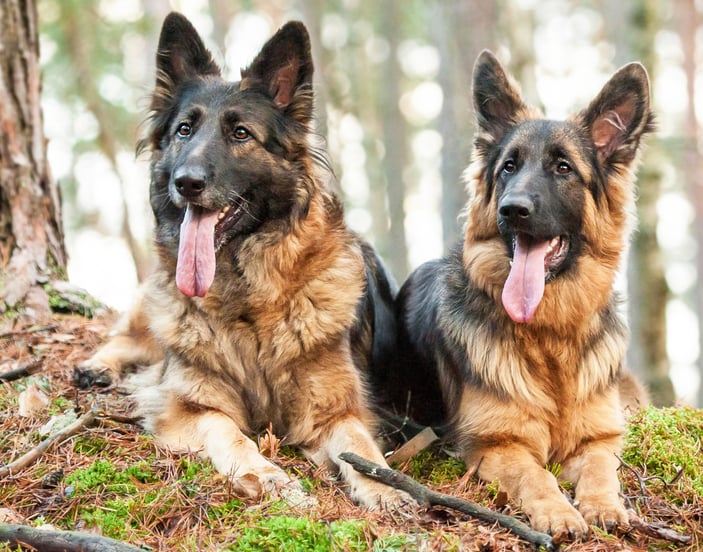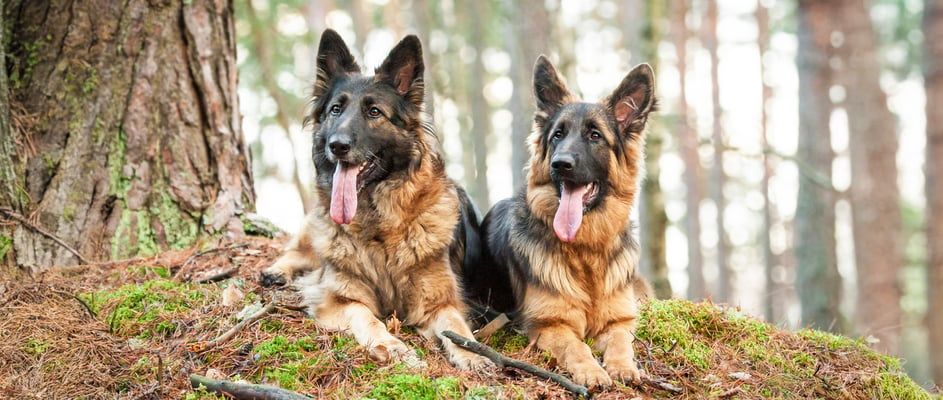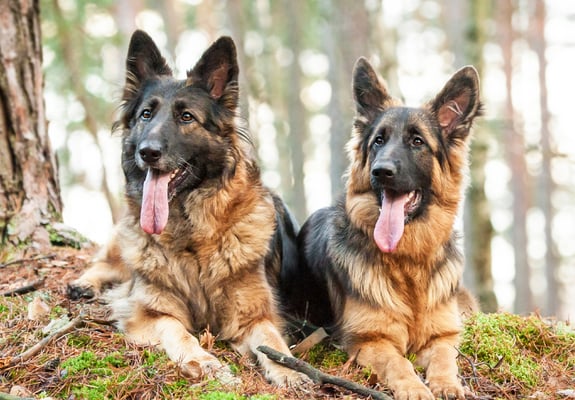The guide to owning a German Shepherd.
Want to know everything there is to know about training your German Shepherd puppy? Submit your email below, and we’ll send you a one-stop guide on all things puppy training!
Jump to:
Stats at a glance.
A history of German Shepherds.
Meet the German Shepherd (sometimes called the Alsatian). This breed came from late 19th-century Germany, thanks to a man named Max von Stephanitz who sought the perfect herding and guard dogs.
He refined local working shepherd mixes until he created a highly intelligent dog with unmatched versatility.
Through the decades, breeders fostered their special talents in search and rescue, police and military operations, and of course as great family companions.
These days, the German Shepherd breed is still used in professional fields as search and rescue dogs for everything from avalanche rescue to assisting vulnerable people.
They are revered the world over as a pet for families and remain one of the most popular dog breeds in the UK.
Want to explore further? Check out our look at big dog breeds in the UK to see how the German Shepherd stands out among other larger breeds of dog.
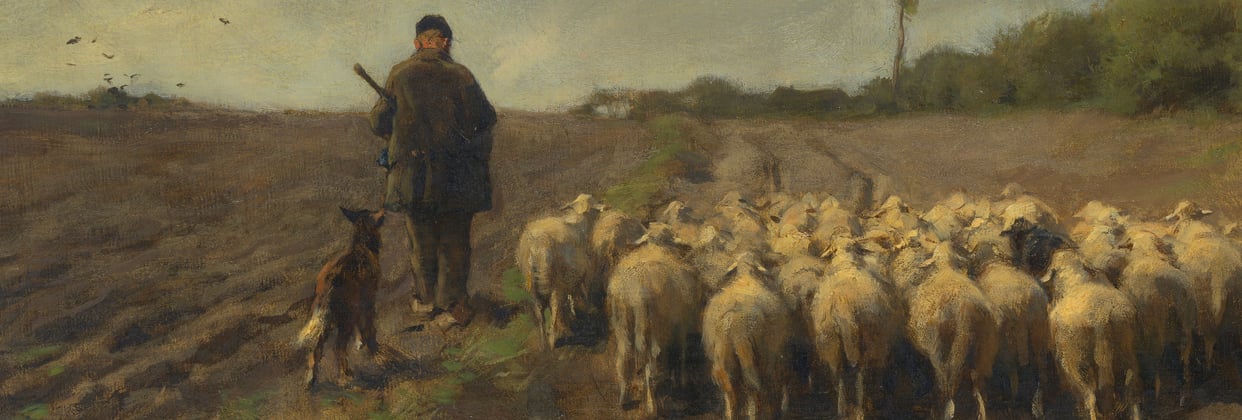

How much is a German Shepherd puppy (UK)?
The cost of a German Shepherd dog can vary quite a bit, often spanning £800–£2,00 depending on factors like lineage, breeder reputation, and location.
If a pup has working or show titles in the family, you might see higher price tags. And let’s not skip any additional fees for vaccinations, microchipping, or any early dog training costs.
Got questions about committing to a new pup? Take a peek at our puppy checklist and essentials guide to ensure you’re ready for that wagging tail.
Colours and coat types.
German Shepherds have a double coat with a tough outer coat plus an insulating undercoat — perfect for their historical job as working dogs in all weathers.
They’re often seen in black and tan, sable, or pure black. Some rarer patterns include white (though it is typically considered a separate breed by some clubs), and on occasion, you might spot ads for German Shepherd puppies with exotic coats like panda and Isabella.
GSD coats range from short to plush. No matter the length, they tend to shed a lot, especially during seasonal coat changes.
If you’re searching for a breed with minimal hair around the house, consider one of the other dog breeds with pointy ears who might shed less but do note that most German Shepherd fans happily accept some fluff in their lives!





Size and weight.
Welcome a German Shepherd adult into your home, and you’ll see they’re a sturdy, well-built dog. Males usually weigh more than females, but here’s a general guide:
They’re truly majestic, with a long body, proud posture, and that classic alert ear set everyone recognises.
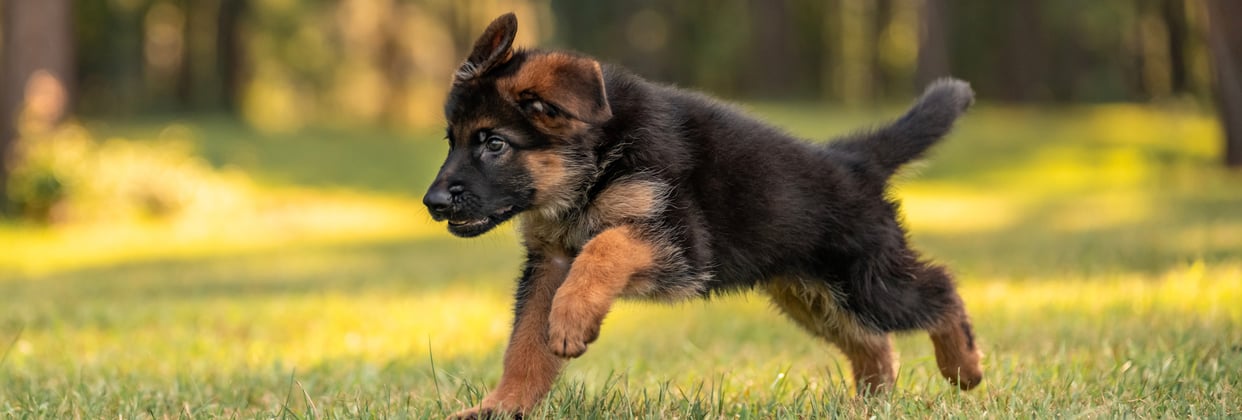

Temperament and behaviour.
Temperament
The German Shepherd is known for loyalty, confidence, and protective instincts. They’re typically calm with family but reserved with strangers. Thanks to their highly intelligent nature and eagerness to please, they pick up new tasks and commands fast.
Do German Shepherds make good pets?
Yes, they can be fantastic companions for the right home. They bond deeply, crave mental and physical exercise, and love challenges.
A bored German Shepherd dog might turn to destructive habits, so puzzle toys, advanced training, or fun dog sports like agility can keep them content.
If you’re looking for a family-friendly breed, you might also enjoy our best family dogs in the UK list.
Are German Shepherds good with kids?
They often are, especially if raised alongside children. With that said, big dogs can bowl over little ones unintentionally. Supervision and respectful boundaries help everyone stay safe and happy.
Are German Shepherds good with cats?
Some German Shepherds may adapt well to cats when introduced young and carefully. Keep in mind that they have strong herding and protective tendencies, so the occasional chase might happen. Calm intros and positive reinforcement go a long way.


Do German Shepherds suffer from separation anxiety?
They form tight bonds with their humans. They can find alone time stressful if left for too long without activities.
Work schedules that keep them from daily walks or mental stimulation might lead to whining, barking, or destructive chewing. If you worry about this, our managing separation anxiety guide offers practical tips.
Can German Shepherds be left alone?
A few hours here and there can work if you give your dog enough stimulation first. Puzzle toys, a midday dog walker, or doggy day care can help. Some female German Shepherds might be extra clingy but every dog is unique.
Can German Shepherds live in apartments?
They can, if owners meet their mental and physical needs. However, their size and love for roaming makes a home with a garden more natural.
If you do live in an apartment, plan plenty of outside time and be mindful of your neighbours if your dog barks at unusual noises.
Training a German Shepherd.
Are German Shepherds smart?
Absolutely. They’re highly intelligent and easy to train if you use gentle, consistent methods. They respond well to praise, treats, and especially new challenges.
For a successful journey:
Start introducing your puppy to new things early.
Keep lessons short and upbeat.
Praise good behaviour rather than focusing on mistakes.
Never use harsh punishments.
For more structured guidance, you might enjoy tips from our socialising your puppy blog.
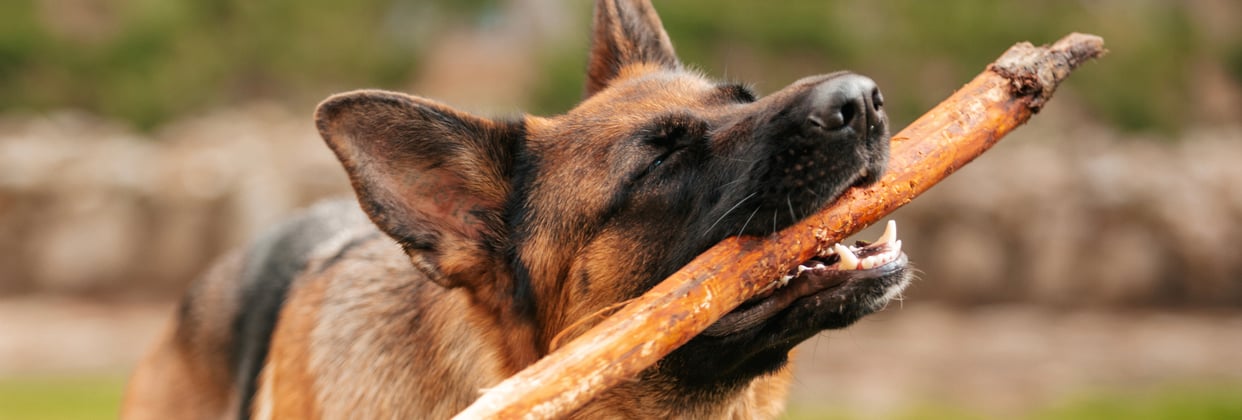

Shedding and grooming.
A German Shepherd’s coat is pretty dense. As we noted, German Shepherds have a double coat that can drop fur all over your sofa.
Weekly brushing helps remove loose hair and prevents matting. When they have a major seasonal shed (also called “blowing coat”), brush them more often to avoid clumps drifting across your hardwood floors.
How often should I brush my German Shepherd?
Aim for at least twice a week normally, then daily during heavy shedding times. A slicker brush or undercoat rake works well to keep tangles away and maintain a healthy body condition.


Exercise and mental stimulation.
German Shepherds are lively and agile. They thrive when they have proper mental and physical exercise each day. If you’re after a dog for search and rescue, advanced obedience, or even rally, you’ve picked a prime breed.
Typical needs:
60–90 minutes of exercise daily.
Combination of daily walks, runs, or hikes.
Interactive puzzle games or advanced trick training.
They love to run, so a safe enclosed space or a structured jog at your side is ideal. For more advanced activities, you could even pick up dog sports like Schutzhund or agility.
In need of extra ideas? Our article on how to make your dog happy shares ways to keep them thinking and busy.


Feeding and nutrition.
A German Shepherd dog typically does best on high-quality diets that meet large-breed nutritional requirements. Look for good protein sources (e.g. dehydrated poultry protein) plus beneficial extras like a source of glucosamine or a source of chondroitin for joint support.
General guide (adjust amounts depending on age, activity, and your vet’s advice):
2–3 cups of balanced dog breed formula daily, divided into two meals.
Pick a brand with a good source of manno-oligo-saccharides or a source of polyphenols if you want added gut and immune benefits.
Keep an eye on your buddy’s body condition scoring. This is a true measure of healthy weight, not just the scale number.
Common health issues in German Shepherds.
Just like many larger breeds of dog, German Shepherds face specific health conditions. Here’s what owners should know:
These costs will vary, and some advanced surgeries or specialist consults can be higher. Regular vet check-ups catch many problems before they worsen.
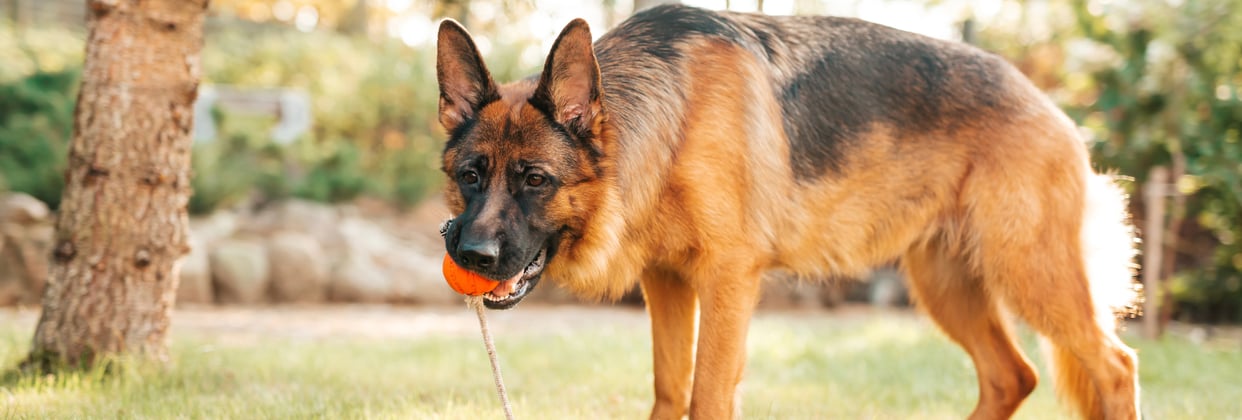

Pet insurance for German Shepherds.
Because these working dogs can face challenges like hip dysplasia or degenerative myelopathy, investing in insurance is wise. You don’t want vet bills blocking your pup’s path to a forever home with you.
At Waggel, we offer:
Comprehensive Lifetime cover.
24/7 online vet access.
Behaviour and nutritional support.
Get Waggel pet insurance for your German Shepherd today. If you’d like to see how we stack up against others, our "Why Compare the Best Pet Insurance" post spells out the benefits of robust coverage.
A German Shepherd is an incredibly rewarding companion for those ready to meet their exercise and training needs. They’re loyal, easy to train with positive methods, and famously love a job to do.
By offering ample mental and physical stimulation, top-quality healthcare, and loving attention, you’ll forge an unbreakable bond with your new best friend whatever the breed, but especially if you choose this stunning, highly intelligent companion.
We hope your time with a German Shepherd is everything you dream it to be.
